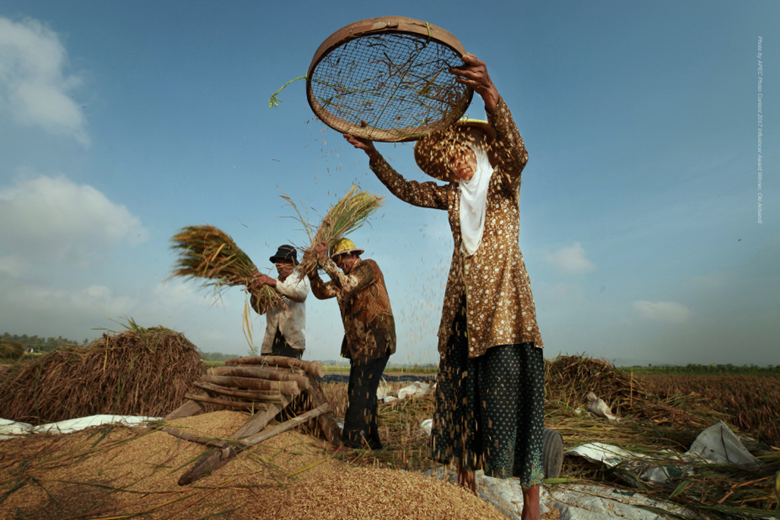APEC Needs to Build Greater Food Systems’ Resiliency: Report

APEC member economies need to remain vigilant and proactive in their efforts to build greater resiliency in food systems and in addressing connectivity and supply chain obstacles in the trade of agricultural products, according to a new policy brief by the APEC Policy Support Unit.
“APEC member economies are already facing challenges in food security due to shifts in consumer demand and growing population,” said Dato' Haslina Abdul Hamid, Chair of the APEC Policy Partnership on Food Security. “The pandemic is adding pressure to food security in the region.”
“Hence, we must pursue coordinated initiatives to keep food trade open, facilitate connectivity, and expedite customs clearance of food products,” she explained.
The policy brief, Food Security Response Measures to COVID-19, analyses multifaceted challenges throughout the entire food system, from production to distribution and market access. It identifies the economic issues affecting food security and puts forward policy recommendations to strengthen regional food security.
The report notes that the COVID-19 pandemic has caused major disruptions to the production of several food products, particularly those that require intensive use of labour, such as meat processing facilities and fruit and vegetable packing plants. Outbreaks among food production workers and the unavailability of temporary migrant workers could impact the economy’s ability to produce food.
“Member economies need to ensure that reductions in production capacity do not occur in multiple food sectors at the same time, which could potentially cause a breakdown in the overall domestic and international food supply chain,” explained Carlos Kuriyama, Senior Analyst with the APEC Policy Support Unit.
Most food products are shipped by sea. Although most of the major seaports in the region have remained open and shipping lines have continued to operate the analysis shows that there have been substantial delays in shipping times for sea freight due to reduced container capacity as well as stringent border measures to reduce the spread of the virus.
To tackle distribution bottlenecks, the report recommends that APEC member economies establish clear guidelines at ports of entry concerning the mobility of shipping crews and other transport workers, as well as expediting customs clearance. Policymakers are also encouraged to accelerate wider applications of digital technology at the border.
Accelerating the adoption of digital tools will also help address the notable shift in consumer patterns of food products. For example, many restaurants have been forced to close. But others are offering delivery service to bring food directly to customers through digital platforms. The report highlights the case of small-scale farmers and fishermen in the region who have taken a similar approach and turned to e-commerce and mobile money for the first time in order to connect with buyers and suppliers.
The report further recommends APEC economies to consider food trade as an essential component of food security and to avoid protectionist measures such as export restrictions and policies which are not based on evidence and scientific risk assessment.
Senior agriculture and food industry officials as well as private sector representatives will convene virtually later this week to further discuss strategic measures to address the challenges caused by the COVID-19 crisis and improve resiliency in food systems. Following the meeting, agriculture and food ministers and senior representatives will also meet virtually at the Ministerial Policy Dialogue on Food Security on 27 October, chaired by Malaysia’s Minister of Agriculture and Food Industries, Datuk Seri Dr Ronald Kiandee.
For more information on the “Food Security Response Measures to COVID-19” Policy Brief by APEC Policy Support Unit, visit this page.
# # #
For further details, please contact:
Masyitha Baziad +65 9751 2146 at [email protected]
Michael Chapnick +65 9647 4847 at [email protected]
More on APEC meetings, events, projects and publications can be found on www.apec.org. You can also follow APEC on Twitter and join us on Facebook, LinkedIn.

